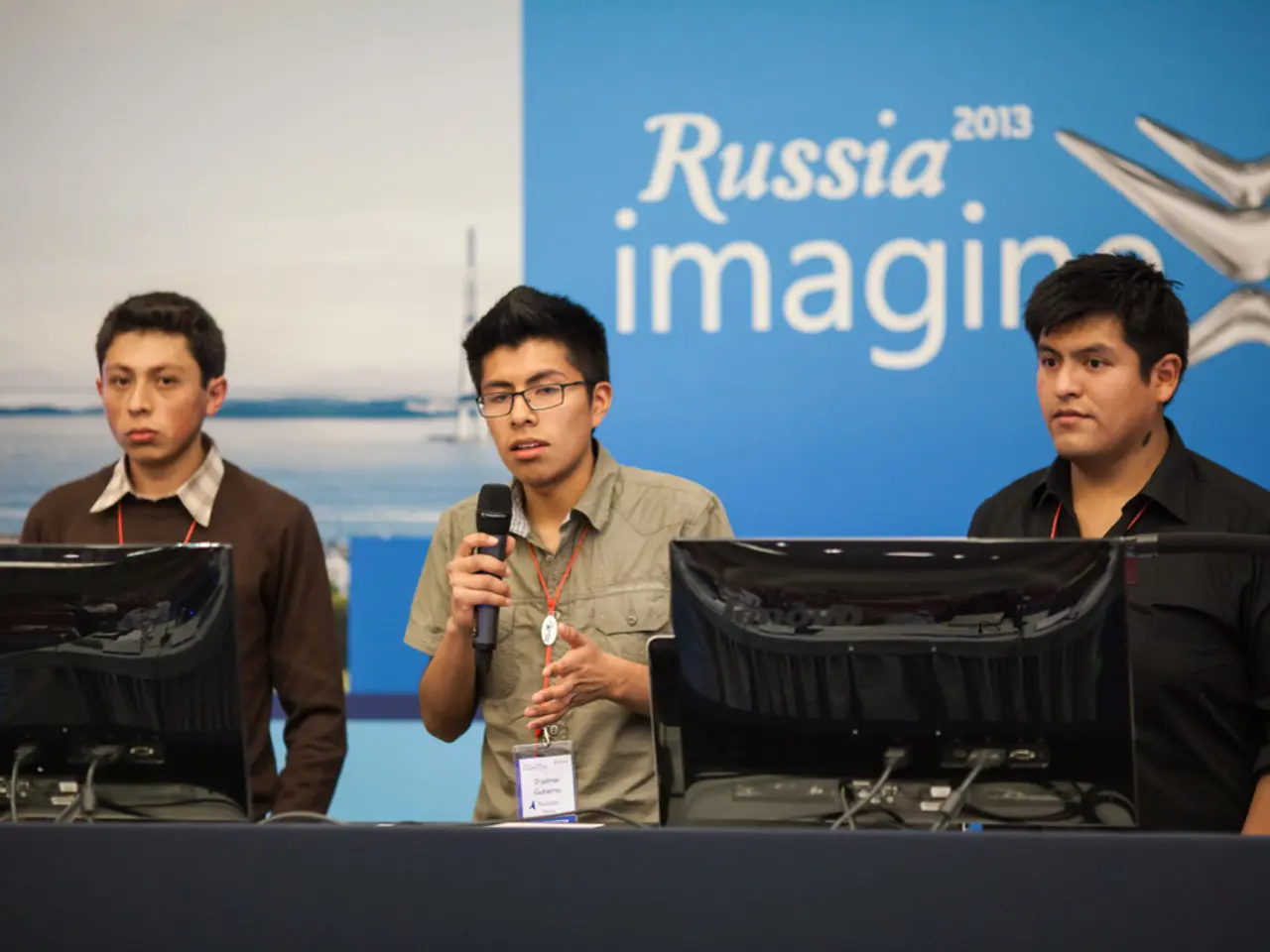Political opposition calls for reevaluation of West Sea wind energy initiatives, due to alleged connections with China.
In the heart of the West Sea, South Korea is embarking on a significant offshore wind energy venture. The Hanbit offshore wind project, scheduled to begin construction in 2027, is designed to generate 334 megawatts of electricity annually, enough to power approximately 25,000 households per year. However, concerns about national security are casting a shadow over these ambitious plans.
The People Power Party, a major South Korean political party, has raised concerns about Chinese companies' involvement in these projects. Lee Jun-woo, the party's spokesperson, has pointed out the close ties between Chinese companies like China Communications Construction Co. (CCCC) and Shandong Marine Group. CCCC is involved in the procurement of materials for the Yeonggwang Nakwol offshore wind farm project, while Shandong Marine Group was implicated in installing illegal large-scale structures in the Provisional Measures Zone between South Korea and China in the West Sea.
The party's concern is that Chinese companies' involvement could pose potential threats to South Korea's national security. Lee Jun-woo has expressed worries that Korean maritime security could collapse if South Korea gives ground to China under the guise of wind power projects. He mentioned that sensitive maritime information could potentially be gathered through power-generating components if contractors install sensors.
Under Chinese law, individuals and organizations are obligated to cooperate with the government's data collection efforts, making the submission of such information effectively unavoidable, according to Lee. This raises concerns about intelligence gathering, control over critical infrastructure, and strategic vulnerability. Offshore wind farms involve extensive subsea cabling, electrical infrastructure, and operational control systems that could be leveraged for surveillance or cyber intrusions if influenced or operated by foreign entities, especially ones with close ties to a geopolitical competitor like China.
The People Power Party has urged the South Korean government to review two large-scale offshore wind farm projects in the West Sea, including the Hanbit and Nakwol projects. The Yeonggwang Nakwol project, currently under construction and expected to cost 2.3 trillion won ($1.66 billion), is slated to generate 364 megawatts of electricity annually once completed in June 2026.
The party's concerns are not without basis. Chinese firms like Dongfang Electric and China Huaneng Group have advanced offshore wind projects with significant technological capabilities. Their increasing expertise and reach into international markets may raise alarms about reliance on Chinese technology and equipment.
South Korea appears to prioritize domestic firms for key roles in these projects, possibly as a safeguard against the risks associated with Chinese company participation in critical offshore wind projects in contested maritime areas. The strategic significance of the West Sea—shared by China and South Korea—makes allowing Chinese companies involvement in critical infrastructure a potential risk, exposing South Korea to potential control or disruption of energy supply in critical times, opportunity for intelligence collection through access to operational data or physical infrastructure, and increased cybersecurity vulnerabilities if foreign technology contains backdoors or is vulnerable to remote exploitation.
In summary, while specific details about South Korean national security concerns regarding Chinese involvement offshore are not detailed in the search results, the general implications stem from fears of strategic dependency, espionage, and infrastructure sabotage inherent to Chinese company participation in critical offshore wind projects in contested maritime areas. The People Power Party's concerns underscore the need for careful consideration and scrutiny of foreign participation in infrastructure tied to national security, especially in sectors like energy and telecommunications that underpin economic and military readiness.
The Politically-driven concerns about Chinese companies' involvement in South Korea's offshore wind projects, such as the Hanbit and Nakwol projects, extend beyond the realm of war-and-conflicts to encompass the realm of politics, general-news, and crime-and-justice. The People Power Party has raised concerns about the potential threat to South Korea's national security, suggesting that sensitive maritime information could be gathered, intelligence might be used for control over critical infrastructure, and strategic vulnerabilities might arise due to Chinese companies' involvement.
The debates surrounding these offshore wind farm projects serve as a platform for discussions about national security and foreign participation in infrastructure, echoing concerns that can be classified under war-and-conflicts, politics, general-news, and crime-and-justice. The People Power Party's push for a review of these projects highlights the intertwining nature of these issues and the need for careful consideration and scrutiny to protect ongoing national interests.








